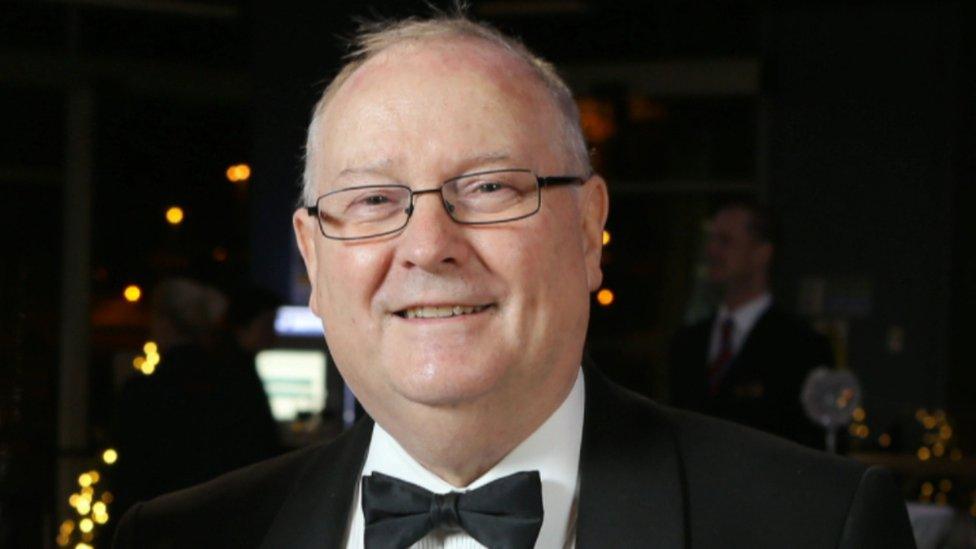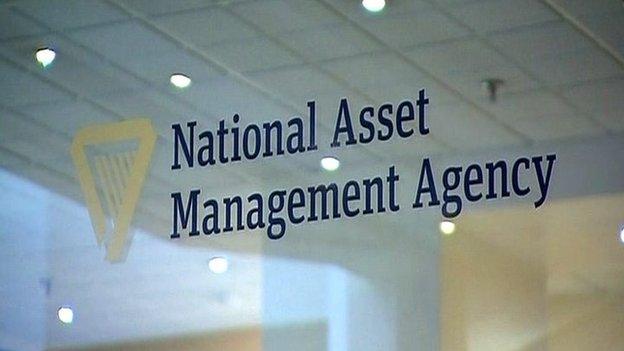Nama deal: Frank Cushnahan asked to explain non-disclosure of potential conflicts of interest
- Published

Frank Cushnahan has been asked to explain why he did not tell Nama about a 2013 meeting with Pimco
The National Asset Management Agency (Nama) has written to a former adviser asking him why he did not disclose potential conflicts of interest.
Frank Cushnahan sat on Nama's Northern Ireland advisory committee from 2010 until November 2013.
A Stormont inquiry heard he met the Pimco investment fund in May 2013 to discuss Nama's Northern Ireland loans.
Nama has asked him to comment on how he determined he was not required to tell them about that meeting.
It has also asked him to provide details of any other meetings with Pimco or "other parties" in relation to the possible sale of the Northern Ireland loans portfolio.
Mr Cushnahan went on to advise Pimco after he left his Nama role and was in line to receive a £5m fee if its bid for the portfolio was successful, an Irish parliamentary committee was told.
The bid collapsed when Nama learned of Mr Cushnahan's role in March 2014.
Evidence
Nama has also asked Mr Cushnahan why he did not disclose his shareholding in the Graham property group, which was a Nama debtor.
Mr Cushnahan has previously stated he gave up that shareholdings in 2009 and that if he remained on the share register it is only because the Graham companies had not provided the necessary updates.
He said for that reason no conflict of interest arose.
Mr Cushnahan has always denied any wrongdoing in relation to his Nama role.
When First Minister Peter Robinson gave evidence to the Stormont inquiry in October he said it was for others to decide if Mr Cushnahan had a conflict of interest.
He said he was "not sure" if there had been a conflict.
The first minister added that he did not believe Mr Cushnahan had any inside information that bidders would not have able to get from Nama.
Investigations
Nama, a state-owned so-called 'bad bank', was set up in the Republic of Ireland to take control of property loans made by the country's banks before the financial crash in 2008.
It sold all of its Northern Ireland property loans to Cerberus in April 2014.
Independent politician Mick Wallace first made claims about fixers' fees connected to the deal in the Irish parliament in July.
His allegations prompted the Northern Ireland Assembly and the Irish parliament to begin investigations into the deal.
The National Crime Agency, the UK's equivalent of the FBI, is carrying out a criminal investigation into the sale.
- Published25 November 2015

- Published14 October 2015

- Published9 July 2015
